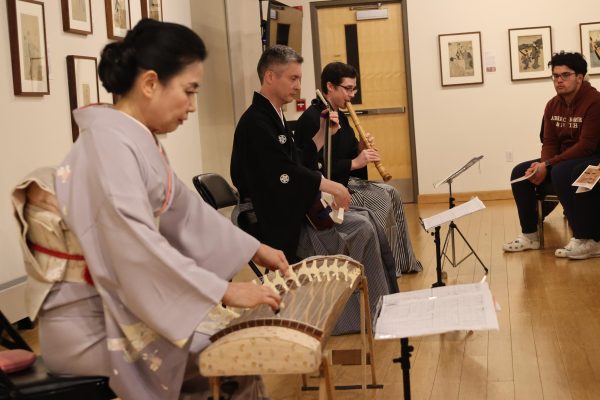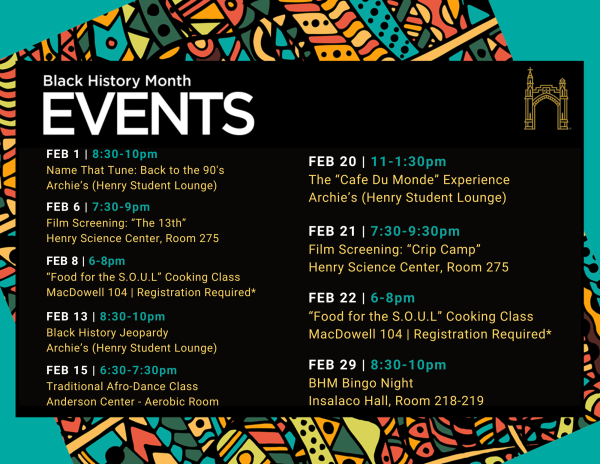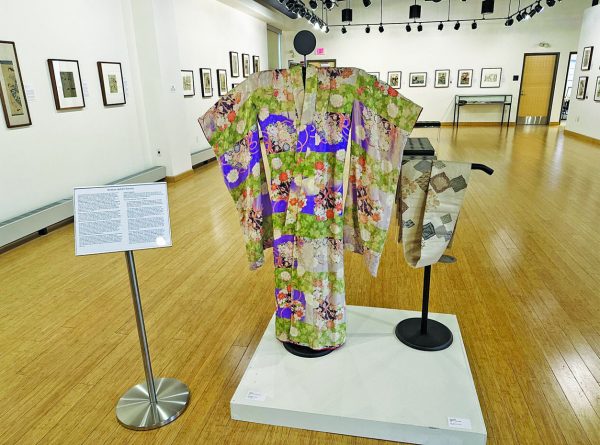Introducing The Integrated Studies Program
April 27, 2022
Editor’s note: The Misericordia University community has likely noticed new teachers and students on campus. They are coaches and student members of the Integrated Studies Program, a new, inclusive, post-secondary certificate program designed specifically for students with moderate autism, with or without co-morbid disorders, and intellectual disability. The coaches are current students who attend and actively assist program members in each of their courses.
The Integrated Studies certificate program is a full-time, college-based, two-year program specifically designed for students between the ages of 18 and 26 who are Level 1 Mild to Level 2 Moderate Autism and gives prospective students access to a full-time inclusive and supported program of study.
The program is part of Autism for Lifelong Learning (ALL), started in 2018. ALL’s goal is to find unique and sustainable jobs, customizable employment, and entrepreneurial opportunities for people with ASD/disabilities so they can be contributing members of their community.
Coaches include Lizzy Fry, Carlisle, occupational therapy major, psychology minor; Bria Brombacher, Avoca, occupational therapy major, psychology minor; Caitlin Scully, Washington Twp., NJ, occupational therapy major; and Lena Conway, Maddison, Ct., occupational therapy major.
Following is a question and answer session designed to offer more information about this program.
How did you hear about the integrated studies program?
Fry: I heard about it from my friend who I played field hockey with and I thought it would be a great opportunity.
Brombacher: I heard about it through the student jobs page. I was searching for a job on campus and this job caught my eye.
Scully: I heard about the program from Lena. She started working there and I was looking for a job on campus and Lena told me I should apply to this one so I applied and now here I am.
Conway: I knew there was an Autism Center so that was the first way I heard about the program. I then reached out over the summer for a work-study job and was put in contact with Janine, who then explained to me about the integrated studies program. Janine explained there were going to be two girls in the program and she needed help with their schedules. So that’s how I got involved.
Do you enjoy helping with the integrated studies program?
Fry: I do enjoy helping with the program. It is nice to have different times and activities that you can help with. And I really enjoy spending time with the students in the program.
Brombacher: I enjoy helping because it is a rewarding experience.
Scully: Yes I love it.
Conway: I definitely enjoy it. I have had a lot of experiences in my past. Before coming to college, I wanted to find a way to help people with special needs in school as well so that’s why I reached out to the Autism Center. I’m happy I got involved. I hope I can make an impact on their college experience.
What is your schedule when helping the integrated study students?
Fry: I help with the program for about an hour a week and it does not add any stress to my schedule. It’s a nice way to break up classes.
Brombacher: It is not really stressful because I only have class on Mondays, Tuesdays, and Wednesdays. I only have night classes on Tuesdays so I’m free to help all day.
Scully: My schedule is a little busy. I go to class with Gailey twice a week and I represent the Autism Center at art classes on Thursday nights. So pretty busy but I like it.
Conway: During the first semester, I was not playing lacrosse so I was definitely more open. I was busy with my classes, as well as working four days at the Autism Center and I definitely enjoyed it. This semester I am in season as well as in a lot of classes which is a lot of work. But I like to keep busy so it is good for me.
Do you plan to help in the future?
Fry: This is my fourth year as an occupational therapy student. In the fall semester, I will not be at Misericordia, but away for fieldwork. But when I am back on campus in the spring, I would like to help.
Brombacher: I am hoping to help as long as I can because I am only a sophomore.
Scully: Yes, I do.
Conway: I plan on helping in the future because I have experience helping both in classes and study halls. I prefer helping in study halls because that is more personalized to the students in the program; whereas, in class I am taking notes which makes it feel like I am just sitting in the class. So, in the future, I hope to do more study hall approach than working in the class.
Are you involved in other activities on campus?
Fry: I am one of the leaders of the Misericordia Occupational Therapy Service Club. I help direct projects for this club. I am a member of the Misericordia Honor Society for Occupational Therapy. I play on the hockey field team and am a member of the mission, ministry, service club on campus.
Brombacher: I am involved in MSOTA which is the club on campus for OT students. MSOTA focuses on volunteer work. I also tutored in the past. But I mostly do volunteer work outside of the integrated studies program.
Scully: Yes, I’m involved in Campus Ministry, MSOTA, and the eco reps club.
Conway: I am involved in the Autism Club. We combined the Autism Club with the Autism Center to plan this year’s Halloween party. I am also involved with the MSOTA, the Misericordia Service Occupational Therapy Club on campus. I also play lacrosse and am in the Psychology Club.
Would you recommend being an academic coach to future students?
Fry: I would recommend it. It’s a great experience for students pursuing careers in education and occupational therapy who want hands-on practical experience.
Brombacher: I would recommend it to anyone interested and especially for students in majors such as health sciences, education, or social work.
Scully: Yes, I do recommend it. It is a great opportunity to get experience with people you will likely encounter in your future careers, as well as providing opportunities to help students succeed.
Conway: I definitely recommend people to become academic coaches. It is beneficial and a great time to learn from students in the program about how they see things. And it’s a great way to meet other people on campus. I would recommend it to people interested in working with people with autism.






